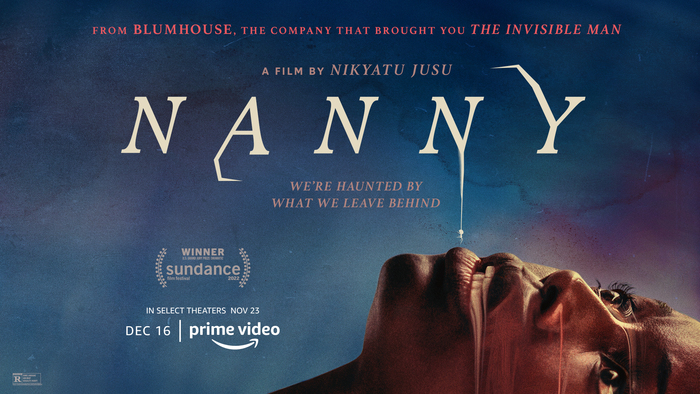Q&A: Nikyatu Jusu speaks on cinematography, themes of debut feature: ‘Nanny’
November 30, 2022
The Daily Texan sat down and discussed “Nanny” with Nikyatu Jusu, Sierra Leonean-American filmmaker known for writing and directing a wide variety of award-winning short films. Most recently, her directorial debut “Nanny,” showed at Austin Film Festival. “Nanny” follows Aisha, an immigrant making a new life in New York, as she becomes a nanny for an upper-class family when a secret truth places an obstacle on her and her goals. Viewers can watch “Nanny” in theaters before its release on Prime Video on Dec. 16.
The Daily Texan: Do you think horror was the best-suited genre from the get-go to tell the story you crafted?
Nikyatu Jusu: I love horror and international horror. When we talk about horror, it’s important for my unique lens to be specific about the type of horror that I love. I love Jennifer Kent’s “The Babadook” because it’s about a mother who’s grieving the loss of a partner and grieving the mother she was before that loss. I love Ari Aster’s “Hereditary” because it’s about generational trauma. The horror films I gravitate toward are about something significantly bigger and more universal in terms of human capacity. You may not see jumpscares in “Nanny,” but the thrumming tension that we’re all navigating in this world is an element of horror that really inspires me. Guillermo del Toro has a really good quote — he’s one of my North Stars creatively — but it’s basically saying he’s less concerned with jumpscares and formula and more concerned with the fantastical and fairy tale elements that speak to a larger human capacity.
DT: What’s that process of collaborating on a shot with your cinematographer?
NJ: Rina Yang is my cinematographer for “Nanny,” and she’s brilliant. She understands lighting, shooting Black skin and she’s edgy. I always want to work with someone who has an edge and is not going to just follow all the rules, because there are so many talented cinematographers (where) all (their) work looks the same. We had a really informal process of sharing images and soundscapes that (weren’t) just film- or TV-related. It was paintings, photography and music. She created a (digital photo) album, and we just kept adding to it daily. Now that we’ve worked together in this capacity, this is the only way I can work now moving forward.
DT: What are you hoping audiences take away from the protagonist Aisha’s story?
NJ: Once you make the film, it belongs to the audience. Regardless of what my intention is, people are going to take what they see in the film based on the lens through which they see the world. I have a lot of sub-intentions, but the big one is at the Sundance labs (where) we hear this phrase that motion picture has the potential to be an empathy machine. I hope people see the world through a lens they either ignore, take for granted or are just willfully not aware of (after watching “Nanny”). A gaze through which this African woman in New York City sees the world. I hope people are more hyper-aware of the people around them as opposed to just living in this society, this capitalistic paradigm that tells us, ‘We’re individuals, we’re all connected.’ I hope people become just a little bit more aware of the human beings around them that may be significantly different from them.





